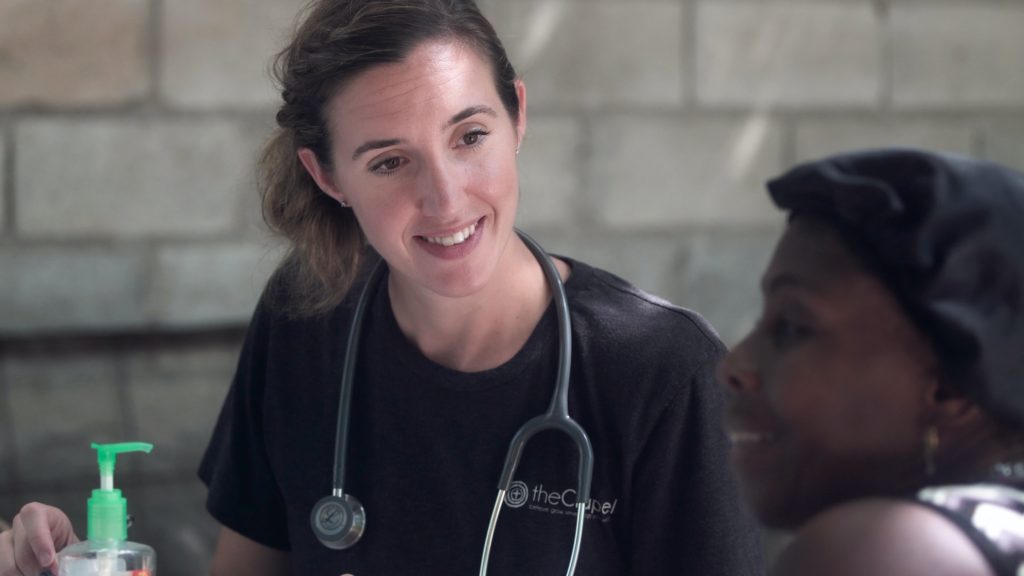Telling your story can be a very powerful experience. However, the doctor’s office is a place where the ability to tell your story can be impacted by trauma, childhood neglect, and instances of racism which can inadvertently result in misdiagnoses, lack of care, and insufficient treatment which all lead to poor outcomes in spite of the best intentions of healthcare providers and their patients.

It is a well-documented fact that there is an implicit bias among the health care community. Research has shown that healthcare providers tend to favor White appearing patients and have more negative attitudes towards people of color. Many times, healthcare providers are not even aware of their own biases and assumptions which negatively affect the health outcomes of their patients. This can result in an increase in negative physical symptoms including prolonging physical ailments, higher likelihood of death among patients of color, and poorer overall health. For this reason alone, I believe it’s important to address the issue of storytelling within the medical setting.
It’s not just people of color who have a hard time telling their story within a healthcare setting. People who have experienced trauma, neglect, abuse, and oppression may either hide or minimize their symptoms, worried that they might be seen in a negative light or not be taken seriously. Trauma in all of its spectrum can affect people’s ability to communicate, trust other people, and feel safe, especially in a setting that by its very nature exposes the common vulnerabilities of our human nature.

For a person who has been sexually abused, any exam that involves touching, removing articles of clothing, or talking about body parts or physical functions can elicit feelings of shame, alarm, and hyperarousal. A doctor’s tone of voice, physical movements, and the question he or she asks and the way they ask it can all make the difference between the ability to form trust in a patient who has been sexually abused or leave the patient feeling ashamed, terrified, or upset.
People who have been physically abused may be on high alert inside a medical office, and may flinch at the slightest touch, be less accepting of treatment until a bond of trust is formed, and devalue their symptoms. They may be out of touch with their body and not able to form words to describe their physical symptoms.
Victims of neglect have learned that their needs are not important and will carry that belief into the doctor’s office. Some symptoms of victims of neglect may include a quiet or passive demeanor, not being forthright or specific about their symptoms, and appearing tearful or emotionally overwhelmed. Often, they will not ask questions that will help them advocate for themselves. On the surface they might agree to the treatment but they may not follow up on treatment protocols, due to poor time management, low self-esteem, and self-sabotaging behavior.
People who have experienced racism either within a medical setting or outside of it will struggle with sharing their symptoms, especially if the provider is the same race as the person who has hurt them. Those who have experienced racism or microaggressions within a medical setting may be reluctant to seek medical help and will wait until symptoms are more severe instead of taking a more preventative approach. Patients of color may be more likely to seek out alternative medicine providers to alleviate their symptoms after losing faith in the traditional medical establishment. Tearfulness, aloofness, brusque behavior, and a stoic attitude in a patient of color can all be manifestations of the emotional pain they carry within them.

Of course, it’s rare to find a patient with just one ACE (adverse childhood effect). Patients will come with a variety of traumas and other issues that are left unspoken until they find the right doctor that builds up trust in the doctor-patient relationship. A good trauma-informed doctor encourages the patient to tell their symptoms in such a way that helps the doctor better understand the patient’s background and arrive at the correct diagnosis. The following are a list of ways that medical providers can help patients tell their stories so that they can share vital medical information with their doctor:
How to Help Patients with Trauma
- Speak in a gentle voice
- Speak slowly
- Assess patients for their ACE score
- Ask the right questions (see below)
- Ask clients what they think might be the cause of their symptoms.
- Avoid rapid physical movement
- Avoid standing too much as that can appear dominant in relation to the client. Sitting can show receptivity towards the patient.
- Look patients in the eye
- Tell patients that their story is important and that you care what they have to say.
- Ask patients for permission to ask questions or perform procedures, especially if they seem nervous, withdrawn, agitated, or have an ACE score.
- Ask for feedback on how you can provide an improved patient experience.
- Assess for and validate the reality of a client’s previous negative medical experience. You are not responsible for medical trauma caused by other providers, but you can provide healing to a client who has experienced medical trauma, simply by providing a positive experience for the client where they can be heard.
- Give patients as much time as you can and apologize if you can’t continue the conversation due to time restraints. Allow the patient to tell you the rest of the story via some other form of communication. This shows the patient that you are interested in what they have to say.
- Respect a client’s culture and be aware of the assumptions you may be making. For example, some clients may not be aware of the basics of nutrition if they were neglected as children. A person who was adopted may not feel comfortable talking about their genetic history, as it reminds them of their loss or what sets them apart from other people.
- Ask patients what would help them feel more comfortable sharing their information.
- Self-disclosure, when done appropriately, can help a patient form a bond with their doctor that helps the patient feel more comfortable disclosing vital information.
Trauma-Informed Questions for Doctors to ask a Patient
- Is there anything you think I should know about?
- Is there anything in the past that might be affecting the symptoms you have now?
- Why do you think this is happening right now?
- Is there anything that makes this hard to talk about?
- If you find it hard to talk about it, is there a better way to tell me what you think I might need to know? What would help?
- Have you ever experienced difficulty receiving medical treatment before?
- Are there things that currently get in the way of being able to receive medical treatment?
- Is there anything else that might make it hard to follow the medical plan?
- If you come up with any more thoughts or concerns on this, could you please let me know?
- How are you feeling today?
Ways to Tell Your Story in a Medical Setting if You Have Experienced Trauma So You can Get the Care You Deserve
- Find the right provider. It’s so important to find a provider who you feel comfortable talking to and who listens to your story. Don’t be afraid to try out several until you find that right fit.
- Take time to prepare ahead of time for your visit with questions you might have. Think about what struggles you may have with talking to your doctor and how you can overcome these challenges.
- Tell your doctor if you are feeling uncomfortable talking about certain things. This can help your doctor understand you better and might help you feel more comfortable talking about it after all.
- Ask the doctor if they have any training or experience in trauma-informed care.
- Remember that you have a right to say no to any treatment.
- All feelings are valid, whether they are physical or emotional. Sometimes talking about your emotions first can help you identify and talk about your physical symptoms.
- If you are worried that your doctor will not believe you, be open with your doctor about it. This will give your doctor a chance to allay your fears and validate your symptoms, thus reducing your negative cognitive distortions and improving your relationship with your doctor.
- Find a type of treatment that is more trauma-informed. Functional and integrative medicine providers, along with naturopaths, tend to have more training in mental health along with a more open, problem-solving approach. However, some more mainstream medical providers are becoming more aware of Adverse Childhood Experiences (ACE) and incorporate that into their practice.
